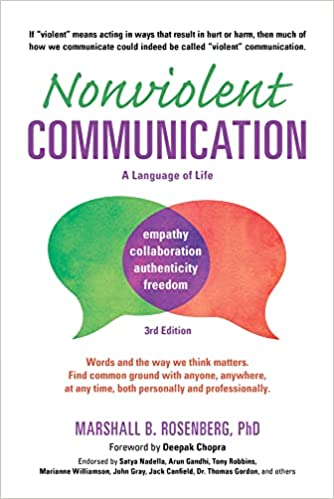Meaningful Conversations: Facilitating Empathic Listening and Mindful Expression
Description
In this workshop participants were able to learn specific and practical communication tools based on the core principles of Nonviolent Communication (NVC), a communication model developed by Dr. Marshall Rosenberg that fosters connection and understanding through compassionate listening, reflecting, and expressing. Participants learned and practiced specific techniques that support an open, respectful, and inclusive classroom environment and encourage a diversity of ideas, perspectives, and experiences. Dr. Paula Willoquet, a consultant and trainer experienced in the practice of Nonviolent Communication, was brought in to lead the workshop. The first 15 participants to sign up and attend the workshop received a copy of Dr. Marshall Rosenberg’s book, Nonviolent Communication: A Language of Life.

Workhop Details
After attending this workshop, participants were able to apply NVC tools with oneself, in one-on-one communication (such as student advising or other student/teacher interaction), and in group dynamics (such as in the classroom). In particular, participants learned and practiced how to use this model of communication to support the discussion of challenging topics, in which divergent opinions might lead to conflict arising in the classroom. The workshop focused on developing the capacity to listen deeply and with openness, even in disagreement, by focusing on connection (both to oneself and to the other) and understanding, rather than seeking agreement.
Content covered included:
- The 4 steps that form the core of NVC as a communication model based on compassionate listening and expressing: Observations, Feelings, Needs, and Requests (OFNR);
- Hearing the feelings and needs behind the words, including words of judgment and blame;
- Welcoming resistance and seeing needs and values behind resistance;
- Mediating differences of perspective and opinions.
The workshop presented the concepts, followed by practiced exercises illustrating these concepts. Attendees practiced in pairs and small groups. Our facilitator answered questions, and addressed specific scenarios raised by participants. Content and practice exercises were followed by a debriefing, taking place over lunch.
Participants were provided with NVC resources used during the workshop on a shared Google Drive. The drive also contains additional material that participants can access after the completion of the workshop. Following the workshop, we offer additional, optional, informal sessions so that attendees can report back on their experiences, learn from others, and receive more resources and support.
